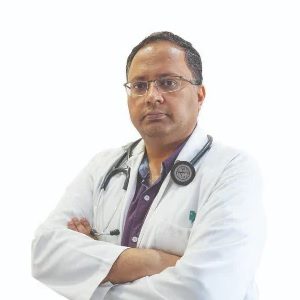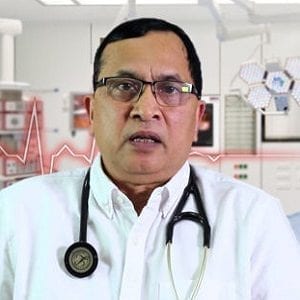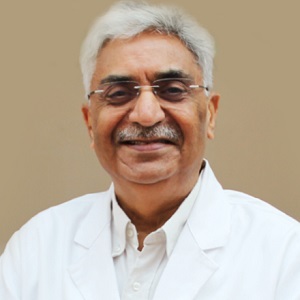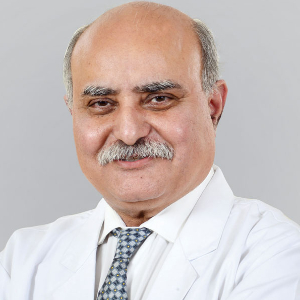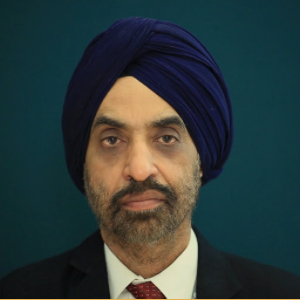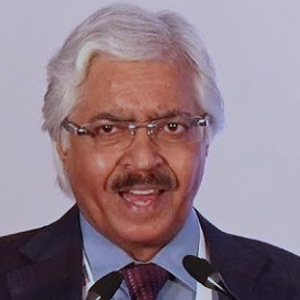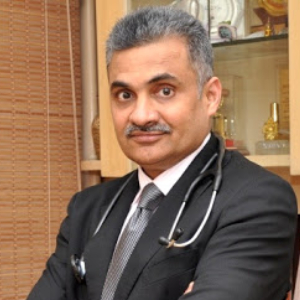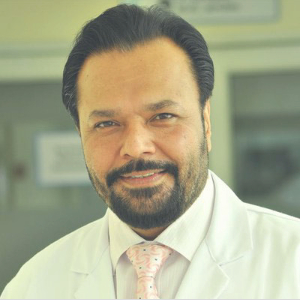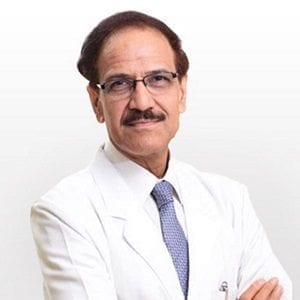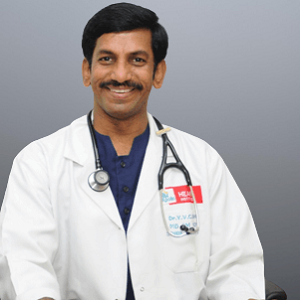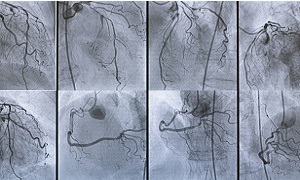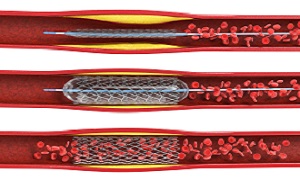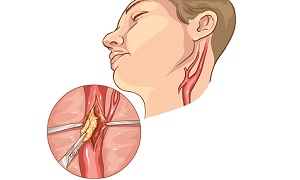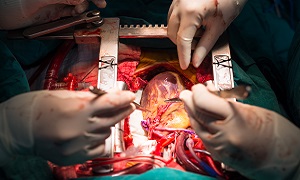Best Doctors in India for Atherosclerosis Treatment
- Interventional Cardiologist, New Delhi, India
- Over 23 years experience
Profile Highlights:
- Dr. Amit Mittal is a cardiologist working at Indraprastha Apollo Hospital in New Delhi with experience of over 23 years in Interventional Cardiology.
- He is good to consult for Angiogram, Angioplasty, and Bypass Surgery. Dr. Mittal has performed over 15,000 cardiac procedures till now. He offers services like EPS and RFA procedures, pacemaker implantation, ECG, complex surgery of heart valve replacement, and angina treatment, to name a few.
- Apart from that, Dr. Mittal won a Gold medal in MBBS 1st y and for the highest marks in obstetrics and gynecology. He published many papers in national and international medical journals and chapters in textbooks.
- Cardio Thoracic & Vascular Surgeon, New Delhi, India
- Over 30 years’ experience
Profile Highlights:
- Dr. Bhaba Nanda Das is a well-known cardiovascular and cardiothoracic surgeon and has performed the first Coronary Artery Bypass Grafting (CABG) on a beating heart in India.
- He has performed over 20,000 cardiac surgeries and does more than 800 cardiac surgeries annually.
- With a keen interest in cardiovascular and thoracic procedures, Dr. Das is the first cardiac surgeon to use all arterial grafts for multiple coronary revascularizations. He was also the first to use coronary sinus in Fontan’s circulation.
- Vascular Surgeon and Interventional Cardiologist, Gurugram, India
- Over 30 years’ experience
Profile Highlights:
- Dr. T S Kler is undoubtedly one of the best vascular surgeons not only in India but also abroad. He has performed more than 25,000 Surgeries in his life which makes him stand where he is.
- He is a pioneer in electrophysiology & he established the first dedicated Electrophysiology department in India at Fortis Escorts Heart Institute.
- Dr. T S Kler initiated a radio Frequency Ablations programme at Escorts in 1993, one of the first of its kind in India. He was the first doctor in India to implant an ICD, CRT-P & CRT-D.
- Cardio Thoracic & Vascular Surgeon, New Delhi, India
- Over 30 years’ experience
Profile Highlights:
- Dr. Ajay Kaul is a leading name in the field of Cardiothoracic and Vascular Surgery in India with over 3 decades of experience.
- He specializes in Coronary Bypass surgery and is one of the best with the highest number of total arterial coronary bypass surgery (4000+) by using two internal mammary arteries from the chest and without any cuts on arms and legs.
- He is also an expert in minimally invasive cardiac surgeries (MICS) and has performed more than 4000 MICS which is the highest by any cardiac surgeon in India.
- Cardiologist, New Delhi, India
- Over 32 years’ experience
Profile Highlights:
- Dr. Balbir Singh is a reputed cardiologist with over 32 years of experience, considered a veteran in his field, both nationally and internationally.
- He has also pioneered several minimally invasive cardiology surgical techniques in India and has been honored with the prestigious Padma Shree Award for his exceptional performance.
- “LIMCA” Book of Records also highlighted Dr. Balbir Singh’s contribution to the medical field in the Indian Electrophysiology Journal.
- Interventional Cardiologist, New Delhi, India
- Over 30 years’ experience
Profile Highlights:
- Dr. Ashok Seth is one of the most well-known Interventional Cardiologists in India honored with both the Padma Shri and Padma Bhushan by the Government of India.
- He has more than 3 decades of experience in interventional cardiology and has performed over 20, 000 angioplasties and 50,000 angiograms till date.
- Dr. Seth holds a Fellowship of the Royal College of Physicians of Ireland, London, and Edinburgh along with several other degrees to his name.
- Interventional Cardiologist, New Delhi, India
- Over 20 years’ experience
Profile Highlights:
- Dr. Praveer Aggarwal is a nationally acclaimed and highly professional Interventional Cardiologist.
- His specialization lies in the treatment of blockages of the coronary and peripheral arteries and is an expert in Rotational and Directional atherectomy, intravascular ultrasound, pressure wire, and the use of Drug Eluting Stents.
- Along with his team at Fortis Escorts Heart Institute, Dr. Aggarwal performs close to 2000 angiographies and over 2000 coronary interventions including coronary angioplasties every year.
- Interventional Cardiologist, Gurugram, India
- Over 27 years’ experience
Profile Highlights:
- Dr. Manjinder Sandhu is a leading interventional cardiologist based in Gurugram who holds an extensive experience of over 27 years in the field.
- His primary interest lies in Complex Coronary Interventions, Trans-radial Interventions, and Balloon Valvuloplasty, and has performed a large number of such procedures in his career mainly while serving in the Army Medical Corps.
- Dr. Sandhu has been teaching and training postgraduate students in Cardiology and Medicine and has been a guide to several successful cardiologists in India.
- Interventional Cardiologist, New Delhi, India
- Over 20 years’ experience
Profile Highlights:
- Dr. Subhas Chandra is a leading Interventional Cardiologist who holds close to 20 years of experience and specializes in coronary interventions, endovascular interventions, device implantation, and structural heart diseases.
- He has performed more than 25,000 coronary interventions (complex angioplasty and rotablation), 4000+ for structural heart diseases, and has done more than 3000 permanent pacemaker implants.
- Interventional Cardiologist, Chennai, India
- Over 25 years’ experience
Profile Highlights:
- Dr. Y Vijayachandra Reddy is an interventional cardiologist with 25+ years of experience.
- Dr. Reddy’s work experience includes more than 7000 PCIs, 30000 invasive procedures, 550 PCIs in cardiogenic shock, 700 Cardiac devices, 400 PTMCs, and several EVAR and TEVAR procedures.
- His expertise lies in pacemaker implantations, pediatric interventions, ICDs, CRTs, endovascular repairs, and more.
Best Hospitals in India for Atherosclerosis Treatment
BLK Max Super Specialty Hospital, New Delhi
- City: New Delhi, India
Hospital Highlights:
- Equipped with 650 beds, BLK Superspecialty Hospital is the largest stand-alone private sector hospital in Delhi.
- With over 1500 healthcare providers and 150 globally renowned super specialists, the hospital is one of Asia’s largest Bone Marrow Transplant Centres. The hospital is known for having some of the best cancer doctors in the country.
- The hospital is NABH and NABL accredited and was inaugurated by the first Prime Minister of India. Pt. Jawahar Lal Nehru.
Gleneagles Global Hospitals, Chennai
- City: Chennai, India
Hospital Highlights:
- Established in 1999, Gleneagles Global Hospital, Chennai, is one of the top healthcare facilities in Southern India. It is part of the Gleneagles Hospital Chain, which is the fourth largest healthcare chain in the country. The hospital specializes in multi-organ transplants of kidneys, liver, lungs, heart, etc.
- The hospital has an excellent infrastructure and state-of-the-art lab and equipment set-up. The hospital boasts cutting-edge technologies, a highly skilled team of doctors and surgeons, and trained support staff. Located in Perumbakam, Chennai, it is one of India’s premier health care destinations. The hospital has performed some of the most complex surgical and clinical procedures in India including multi-organ transplantations.
- The hospital’s lung transplantation program is one of the best in the country. The hospital is known for having performed India’s first single lung transplant and first minimal invasive lung transplant. It is also the only Indian hospital to be associated with King’s College Hospital, London, United Kingdom for liver transplantations.
Fortis Hospital, Mulund, Mumbai
- City: Mumbai, India
Hospital Highlights:
- Fortis Hospital in Mulund is a 315-bed multi-speciality tertiary care hospital with five JCI accreditations that offers a wide variety of diagnostic and therapeutic services. The Fortis Hospital in Mulund delivers patient-centred treatment with cutting-edge technology, highly skilled and experienced surgeons, and paramedical staff.
- This institution houses Maharashtra’s largest multi-organ transplant centre. It is also the first heart transplant centre in western India to conduct 100 or more consecutive heart transplants in under four years. It is the only hospital in the city to have multi-organ transplants and has handled the youngest patient for angioplasty. Fortis Hospital Mulund now boasts the first advanced surgical robot in central Mumbai.
- Cardiology and heart surgery, urology, nephrology, neurosciences, orthopaedics, digestive care, emergency and critical care, and maternity care are among the services provided by the hospital.
Kokilaben Dhirubhai Ambani Hospital, Mumbai
- City: Mumbai, India
Hospital Highlights:
- Kokilaben Dhirubhai Ambani Hospital, Named after the wife of Indian industrialist Dhirubhai Ambani, the founder of Reliance Industries, this is one of the top hospitals in Mumbai. This 750-bed multi-specialty hospital became operational in 2009. Known as one of India’s most advanced tertiary care facilities, the hospital is designed to raise India’s global standing as a healthcare hub, with an emphasis on excellence in clinical services.
- Kokilaben Dhirubhai Ambani Hospital uses Protocol and Care Pathway based treatment models to ensure the best outcomes for patients.
- The hospital represents a confluence of top-notch talent, cutting-edge technology, state-of-the-art infrastructure, and, most importantly commitment.
- The hospital also holds the accreditation of the NABH, NABL, CAP, and JCI.
- The hospital has been recognized as the No. 1 Multispecialty Hospital in Mumbai and the West Zone for the fifth year in a row in 2020 by The Week.
Fortis Escorts Hospital, New Delhi
- City: New Delhi, India
Hospital Highlights:
- Over the last 33 years, the Fortis Escorts Heart Institute has set new standards in cardiac treatment with groundbreaking research. It is now known around the world as a centre of expertise for Cardiac Bypass Surgery, Interventional Cardiology, Non-invasive Cardiology, Paediatric Cardiology, and Paediatric Cardiac Surgery.
- The hospital has cutting-edge laboratories that perform a wide range of diagnostic tests in Nuclear Medicine, Radiology, Biochemistry, Haematology, Transfusion Medicine, and Microbiology.
- Fortis Escorts Heart Institute boasts a diverse group of bright and experienced doctors who are backed up by a team of highly qualified, experienced, and devoted support professionals as well as cutting-edge equipment such as the recently installed Dual CT Scan.
- Approximately 200 cardiac doctors and 1600 personnel currently collaborate to manage over 14,500 admissions and 7,200 emergency situations each year. The hospital now has a 310-bed infrastructure, as well as five cath labs and a slew of other world-class amenities.
Rela Hospital, Chennai
- City: Chennai, India
Hospital Highlights:
- RIMC is a multi-specialty hospital in a sprawling area of 36 acres located in Chromepet, Chennai, Tamil Nadu, India.
- The facility has 450 beds including 130 critical care beds, 9 operating rooms, modern reference laboratories and radiology services, and is conveniently located near road, rail and air transportation.
- RIMC is led and managed by world-renowned physicians committed to healthcare.
- RIMC offers the broadest range of clinical care, education, and research. The hospital offers state-of-the-art technology and modern treatment facilities designed to provide health care at an affordable cost.
- Rela Institute is driven by patient needs, comfort and confidence.
Atherosclerosis
Atherosclerosis is a condition which causes the arteries to narrow and harden. This leads to your arteries getting blocked, putting your blood flow at risk. It is usually caused by the build-up of fats, cholesterol and other such substances in and on your artery walls.
Atherosclerosis is a type of arteriosclerosis, though the terms are used interchangeably sometimes. The plaque can burst, which can trigger a blood clot. Atherosclerosis is often considered a heart problem, but it might affect any part of your body. This condition is preventable as well as treatable.
Causes
Plaque buildup as well as subsequent hardening of the arteries leads to the blood flow in the arteries being restricted, which prevents your organs and tissues from getting the required oxygenated blood. Some common causes of this condition include:
- High Cholesterol- Cholesterol is a waxy, yellow substance that is found naturally in the body as well as in some foods you consume. When the cholesterol level in your blood is too high, it can lead to the clogging of your arteries. It becomes a hard plaque that restricts or blocks blood circulation to your heart as well as other organs.
- Diet- It is also quite important to eat a healthy diet. An overall healthy diet should include a wide range of fruits and vegetables, whole grains, dairy products with low fat, nuts and legumes, etc.
- Aging- As one ages, their heart and blood vessels work harder to pump as well as receive blood. Your arteries may weaken and become less elastic, which makes them more susceptible to plaque buildup.
Symptoms
Mild atherosclerosis doesn’t usually have any symptoms. Usually, symptoms occur only after an artery is so narrowed or clogged that it is unable to supply adequate blood to the organs and tissues. Sometimes a blood clot can completely block blood flow or it might even break apart and can trigger a heart attack or stroke. Symptoms depend on which part of your body is affected.
- If you have atherosclerosis in your heart arteries, you might show symptoms such as chest pain or pressure.
- If you have atherosclerosis in the arteries which lead to your brain, you might have signs and symptoms such as sudden numbness or weakness in your arms and legs, difficulty in speaking, temporary loss of vision in an eye or your face muscles drooping. These signal a transient ischemic attack and if it is left untreated, it might lead to a stroke.
- If you are having atherosclerosis in the arteries in your arms and legs, you might show symptoms of peripheral artery disease, like leg pain when walking.
- If you have atherosclerosis in the arteries which lead to your kidney, you can develop high blood pressure or maybe even kidney failure.
Diagnosis
Your doctor first performs a physical exam to check for signs of atherosclerosis. They will check if your pulse is weakened or if there are any signs of an aneurysm, which is an abnormal or widening of an artery due to weakness of the arterial wall, slow wound healing, which can indicate a restricted blood flow.
A cardiologist might listen to your heart to check if there are any abnormal sounds. They will be listening for a whooshing noise, which can indicate that an artery is blocked. Your doctor will be ordering more tests if they feel you might have atherosclerosis.
These tests can include:
Blood test
Doppler ultrasound
Ankle-brachial index
Angiogram
Stress test
MRA
Electrocardiogram
Treatment
Medications
There are various drugs that can slow or reverse the effects of atherosclerosis. Some common choices are:
- Cholesterol medications- These kinds of medications are used to lower the low-density lipoprotein cholesterol aggressively, as this may stop or even reverse the buildup of fatty deposits in your arteries. Boosting your high-density lipoprotein cholesterol can however help. Your doctor will guide you in choosing from a range of cholesterol medications.
- Beta-blocker medications- These kinds of medications are commonly used for coronary artery disease. They help in lowering your heart rate as well as your blood pressure and reduces the demand on your heart as well as relieving symptoms of chest pain. They can also reduce your risk of having a heart attack or heart rhythm problems.
- Anti-platelet medications- Your doctor might prescribe you anti-platelet medications like aspirin, to help reduce the likelihood that platelets will clump in narrowed arteries and form a blood clot which will even lead to further blockage.
- Angiotensin-converting enzyme (ACE) inhibitors- These medications might help to slow the progression of atherosclerosis by lowering your blood pressure and they also produce other beneficial effects on your heart arteries. ACE inhibitors can help in reducing the risk of recurrent heart attack as well.
- Calcium channel blockers- These medications can lower blood pressure can also be used for treating angina.
- Water pills (diuretics)- Diuretics can help in lowering blood pressure, as high blood pressure increases the risk of having atherosclerosis.
- Other medications- Your doctor might be suggesting some other medications to control specific risk factors for atherosclerosis, like diabetes.
Surgical procedures
Aggressive treatment can be needed sometimes to treat atherosclerosis. If you are having severe symptoms or a blockage that threatens muscle or skin tissue survival, you might be a candidate for a surgical procedure such as:
Angioplasty and stent placement
During angioplasty and stent placement, your doctor inserts a long and thin tube called a catheter into your blocked or narrowed part of the artery. A second catheter with a deflated balloon on its tip is next passed through the catheter to the narrowed area. Next, the balloon is inflated, compressing the deposits against the artery walls. To help in keeping the artery open, a mesh tube is usually left in the artery.
Endarterectomy
Fibrinolytic therapy
If you have an artery that is blocked by a blood clot, your doctor might use a clot-dissolving drug in order to break it apart.
Bypass surgery
Risk factors
Hardening of the arteries can occur over time. There are quite a few factors which can increase the risk of developing atherosclerosis, which includes:
- High blood pressure
- High cholesterol
- Obesity
- Diabetes
- Smoking and using any such tobacco
- Having a family history with heart disease
- An unhealthy diet
- Lack of regular exercise
Complications
Depending on which arteries are blocked, atherosclerosis can lead to several complications, which can include:
- Coronary artery disease- When atherosclerosis narrows the arteries which are close to your heart, it can lead you to coronary artery disease. This can cause chest pain or a heart attack or even heart failure.
- Carotid artery disease- When atherosclerosis narrows your arteries close to your brain, this might lead you to develop carotid artery disease, which can lead to a transient ischemic attack or even a stroke.
- Peripheral artery disease- When atherosclerosis narrows down your arteries in the arms or legs, this can lead you to develop certain problems which are termed as peripheral artery disease. This can make you less sensitive to heat and cold and can increase your chances of burns or frostbites. Although it is rare, in some cases, poor circulation in your arms and legs can also cause tissue death.
- Chronic kidney disease– Atherosclerosis can also cause the arteries which lead to your kidneys to narrow, which will prevent oxygenated blood from reaching them. This can affect your kidney function over time keeping waste from exiting your system.
- Aneurysms- Atherosclerosis can also lead to aneurysms, which is a serious complication that can occur anywhere in the body. An aneurysm is basically a bulge in the wall of the artery. Many people with aneurysms usually show no symptoms. If pain and throbbing in the area of aneurysm occur, it is declared as a medical emergency. If an aneurysm bursts, it can cause life-threatening internal bleeding.
Prevention
Preventive measures can also help one against atherosclerosis. Quitting smoking, regular exercise and maintaining a healthy weight, eating healthy food can help a great deal

